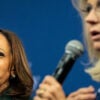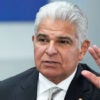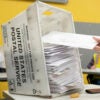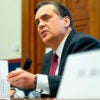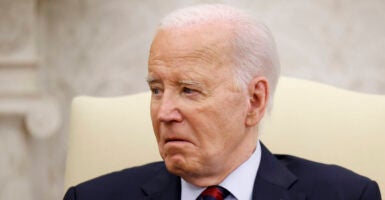If Democrats seek to swap out President Joe Biden for another candidate on the Nov. 5 ballot, they’ll face legal challenges, according to an analysis by The Heritage Foundation’s Oversight Project.
That’s because a patchwork of state laws determines what a political party must do to substitute someone else as a presidential nominee.
“If there is a freezing moment or something very consequential that happens at the debate, the likelihood goes up,” Mike Howell, executive director of the Oversight Project, told reporters Tuesday.
CNN will host a 90-minute debate Thursday night between Biden and former President Donald Trump.
“There is not a political exception that if you’ve been trying to cover up the fact that your candidate has been declining rapidly to the extent that you are even invoking executive privilege to hide an audio tape … you just get to supersede all of the election integrity rules that exist in the various states,” Howell told reporters.
Special counsel Rober Hur’s report on Biden’s possession of classified documents from his years as vice president and senator characterized him as “elderly” and “struggling” with memory loss.
The Biden administration invoked executive privilege to block release of audio recordings of his two interviews last fall with the special counsel. The Oversight Project is part of a multiparty lawsuit by CNN and other news outlets, as well as watchdog groups, to access the audio recordings of the Biden interviews.
More recently, Biden had a wandering incident at the G7 summit in Italy and also appeared to freeze onstage at the end of a Los Angeles fundraiser and be physically guided away by former President Barack Obama (who Biden served as vice president for eight years).
If delegates to the Democratic National Convention were to nominate another candidate for president in August, it might not affect relevant state laws, said Sam Dewey, counsel for Heritage’s Oversight Project.
“There are two separate questions. One is who gets the party’s nomination. The second is ballot access,” Dewey told reporters. “You can be nominated by a party and not necessarily have access to a ballot. We are seeing that right now with attempts by the DNC to keep Robert Kennedy, RFK Jr., off the ballot. It’s separate. Just being nominated by a party doesn’t get you on a ballot.”
Dewey continued:
Even if at the convention, superdelegates and a bunch of [other] delegates get together and said, ‘We’re not doing this, we’re subbing in the vice president [for Biden], we’re subbing in Hillary Clinton,’ pick whomever, that wouldn’t at all speak to what [our] memo was addressing, which was access to ballots. That’s an entirely different question. If someone drops out, that frequently is litigated.
The Oversight Project sent a memo on substituting candidates to top election officials in all 50 states for their review.
Battleground states such as Georgia and Nevada have procedures under which a presidential candidate may withdraw from the balllot. Wisconsin allows it to occur only in case of death, according to the memo.
“Important caveats include the timeline and triggering events,” the Oversight Project’s memo says, adding:
For example, some states allow withdrawal before the 74th day before an election, and failure to adhere to these timelines can result in the candidate’s name remaining on the ballot (which provides its own corollary of post-election litigation). Likewise, the rationale for withdrawal (death, medical, or other) can be outcome determinative. Some states, like South Carolina, do not allow withdrawal for political reasons.
Limited case law exists on swapping out political candidates on a ballot, the memo notes. And at least 31 states defer to state or national party rules and nominating committees in the event of a candidate’s withdrawal.
“These states circumvent the substitution process highlighted above,” the Oversight Project’s memo says. “There may be some avenues for challenges to these laws on improper delegation grounds, however, these may be marginally beneficial.”
For its part, the Biden White House has denied that the president has had any mental or physical problems barring his seeking a second four-year term.
White House press secretary Karine Jean-Pierre argued that recent videos unflattering to Biden were “cheap fakes.” First lady Jill Biden has said her husband is a great president “because” of his age.


